detail profile pablo picasso
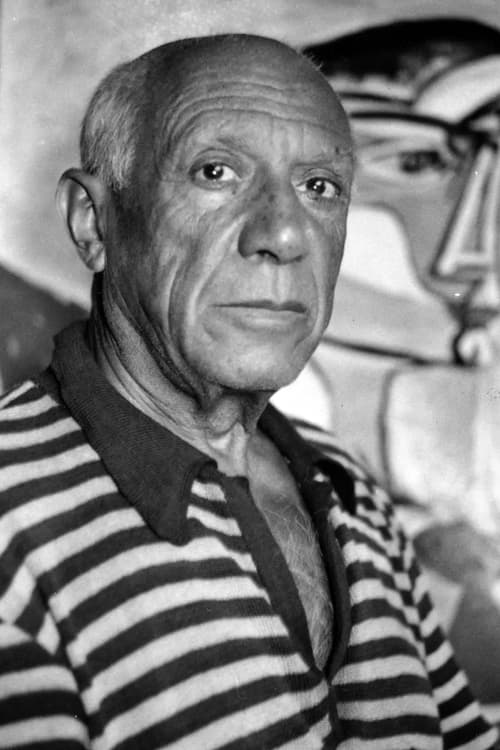
Riwayat Hidup
Pablo Ruiz Picasso (25 October 1881 – 8 April 1973) was a Spanish painter, sculptor, printmaker, ceramicist and theatre designer who spent most of his adult life in France.
One of the most influential artists of the 20th century, he is known for co-founding the Cubist movement, the invention of constructed sculpture, the co-invention of collage, and for the wide variety of styles that he helped develop and explore.
Among his most famous works are the proto-Cubist Les Demoiselles d'Avignon (1907), and the anti-war painting Guernica (1937), a dramatic portrayal of the bombing of Guernica by German and Italian air forces during the Spanish Civil War.
Picasso demonstrated extraordinary artistic talent in his early years, painting in a naturalistic manner through his childhood and adolescence.
During the first decade of the 20th century, his style changed as he experimented with different theories, techniques, and ideas.
After 1906, the Fauvist work of the older artist Henri Matisse motivated Picasso to explore more radical styles, beginning a fruitful rivalry between the two artists, who subsequently were often paired by critics as the leaders of modern art.
Picasso's work is often categorized into periods.
While the names of many of his later periods are debated, the most commonly accepted periods in his work are the Blue Period (1901–1904), the Rose Period (1904–1906), the African-influenced Period (1907–1909), Analytic Cubism (1909–1912), and Synthetic Cubism (1912–1919), also referred to as the Crystal period.
Much of Picasso's work of the late 1910s and early 1920s is in a neoclassical style, and his work in the mid-1920s often has characteristics of Surrealism.
His later work often combines elements of his earlier styles.
Exceptionally prolific throughout the course of his long life, Picasso achieved universal renown and immense fortune for his revolutionary artistic accomplishments, and became one of the best-known figures in 20th-century art.
Picasso was born at 23:15 on 25 October 1881, in the city of Málaga, Andalusia, in southern Spain.
He was the first child of Don José Ruiz y Blasco (1838–1913) and María Picasso y López.
Picasso's family was of middle-class background.
His father was a painter who specialized in naturalistic depictions of birds and other game.
For most of his life, Ruiz was a professor of art at the School of Crafts and a curator of a local museum.
Ruiz's ancestors were minor aristocrats.
Picasso's birth certificate and the record of his baptism include very long names, combining those of various saints and relatives.
Ruiz y Picasso were his paternal and maternal surnames, respectively, per Spanish custom.
The surname "Picasso" comes from Liguria, a coastal region of north-western Italy.
Pablo's maternal great-grandfather, Tommaso Picasso, moved to Spain around 1807.
.
.
.
Source: Article "Pablo Picasso" from Wikipedia in English, licensed under CC-BY-SA 3.
0.
Info Pribadi
Peran Yang Di Mainkan Pablo Picasso
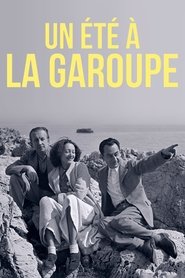 La Garoupe a beach in Antibes...
La Garoupe a beach in Antibes...Un été à la Garoupe 2020
La Garoupe, a beach in Antibes, in 1937. For one summer, the painter and photographer Man Ray films his friends Pablo Picasso, Dora Maar, Paul Eluard and his wife Nusch, as well as Lee Miller. During these few weeks, love, friendship, poetry, photography and painting are still mixed in the carefree and the creativity specific to the artistic movements of the interwar period.
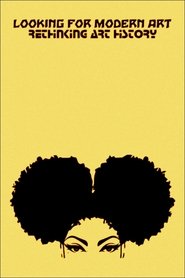 Many twentieth century European artists such...
Many twentieth century European artists such...Looking for Modern Art: Rethinking Art History 2018
Many twentieth century European artists, such as Paul Gauguin or Pablo Picasso, were influenced by art brought to Europe from African and Asian colonies. How to frame these Modernist works today when the idea of the primitive in art is problematic?
 In 1906 Georges Braque and Pablo Picasso...
In 1906 Georges Braque and Pablo Picasso...Picasso, Braque & Cie - The Cubist Revolution 2018
In 1906, Georges Braque and Pablo Picasso were 24 and 25 years old. The Butte Montmartre is their Parisian sanctuary where artists in need of recognition meet. Braque and Picasso become friends to the point of never leaving each other. For the moment, their paintings do not interest many people; only Apollinaire, then aged 26, and the young gallery owner Daniel-Henry Kahnweiler, 22, saw immense potential in them. And in addition to their passion for painting, these four inseparable boys share the same appetite for modernity. Collages, diversions of materials and geometrization of forms: cubism opened the way to abstraction. A revolution initiated by Picasso and Braque, which profoundly changed the course of the history of modern art.
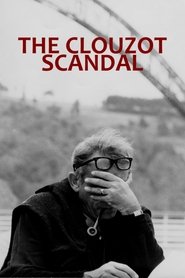 Great filmmakers claim the artistic influence...
Great filmmakers claim the artistic influence...The Clouzot Scandal 2017
Great filmmakers claim the artistic influence of French director Henri-Georges Clouzot (1907-1977), a master of suspense, with a unique vision of the world, who knew how to offer both great shows and subtle studies of characters. Beyond the myth of the tyrannical director, a contrasting portrait of a visionary, an agitator, an artist against the system.
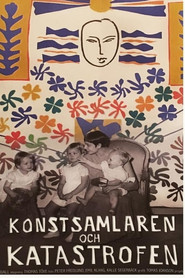 The Artcollector and the catastrophe The...
The Artcollector and the catastrophe The...Konstsamlaren och katastrofen 2017
"The Art-collector and the catastrophe" - The untold story of how Sweden lost a world class art collection. Private art collector Theodor "Teto" Ahrenberg obtained art directly by artists like Picasso, Chagall and Matisse. He became friends with the international artists elite. And therefore developed a conflict with the Swedish art establishment. The Director of the Modern museum Pontus Hultén became his nemesis. Revenge to Theodor Ahrenberg would be creating his own art museum of Stockholm. Designed by world-famous architect Le Corbusier.
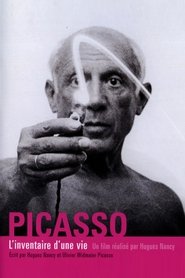 A neverbeforeseen portrait of the artists...
A neverbeforeseen portrait of the artists...Picasso: The Legacy 2014
A never-before-seen portrait of the artist’s life through his entire body of work, from his sketches as a child prodigy until his final paintings.
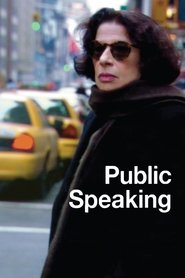 A featurelength documentary starring Fran Lebowitz...
A featurelength documentary starring Fran Lebowitz...Public Speaking 2010
A feature-length documentary starring Fran Lebowitz, a writer known for her unique take on modern life. The film weaves together extemporaneous monologues with archival footage and the effect is a portrait of Fran's worldview and experiences.
 Women many of them lesbian artists...
Women many of them lesbian artists...Paris Was a Woman 1996
Women (many of them lesbian) artists, writers, photographers, designers, and adventurers settled in Paris between the wars. They embraced France, some developed an ex-pat culture, and most cherished a way of life quite different than the one left behind.
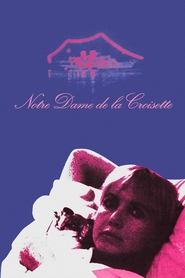 A woman goes to Cannes and...
A woman goes to Cannes and...Notre Dame de la Croisette 1983
A woman goes to Cannes and, lost in its chaos and unable to obtain tickets, ends up watching it on television from her hotel room.
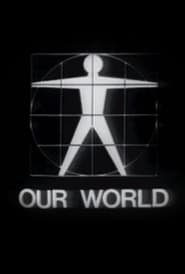 Various international presentions are featured through...
Various international presentions are featured through...Our World 1967
Various international presentions are featured through satellite uplink.
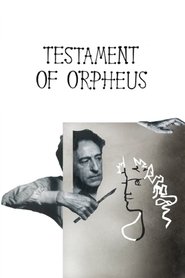 An 18th century poet travels through...
An 18th century poet travels through...Testament of Orpheus 1960
An 18th century poet travels through time in search of divine wisdom. In a mysterious wasteland, he has a series of enigmatic encounters with symbolic phantoms with whom he muses about the nature of art and his own career. Ultimately, the poet strives to achieve his rebirth as a celestial being.
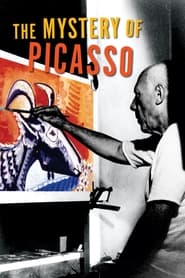 Using a specially designed transparent canvas...
Using a specially designed transparent canvas...The Mystery of Picasso 1956
Using a specially designed transparent 'canvas' to provide an unobstructed view, Picasso creates as the camera rolls. He begins with simple works that take shape after only a single brush stroke. He then progresses to more complex paintings, in which he repeatedly adds and removes elements, transforming the entire scene at will, until at last the work is complete.
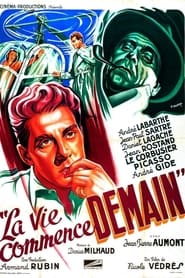 Documentary filmmaker Vdrs first semifictional feature...
Documentary filmmaker Vdrs first semifictional feature...Life Begins Tomorrow 1950
Documentary filmmaker Védrès' first semi-fictional feature was released in France in 1949 as La Vie Commence Demain. The film made it to the U.S. in 1952 as Life Begins Tomorrow. Made in cooperation with UNESCO, the film speculates on the future of mankind after the advent of Atomic Energy. Many prominent French artists and intellects contribute to the narration: Jean-Pierre Aumont plays The Man of Today, Andre Labarthe is the Man of Tomorrow, and Jean-Paul Sartre, Daniel Agache, Jean Rostand, Le Corbusier, Pablo Picasso and Andre Gide are respectively seen as "The Existentialist," "The Psychiatrist,' "The Biologist," "The Architect," "The Artist" and "The Author". Film clips of hospitals, schoolrooms, scientific laboratories, and even nightclubs are woven into Védrès' fascinating tapestry.
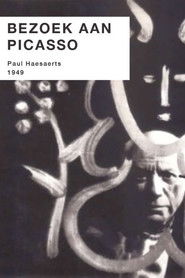 In this short 20 minute black and...
In this short 20 minute black and...A Visit to Picasso 1950
In this short 20 minute black and white Belgian documentary, the director, Paul Haesaerts, visualised Pablo Picasso’s flow of imagination when the Spanish painter drew on large glass plates in front of the camera – like a live show of a greatest artist in performing a few masterstrokes that outlines a dove, bull, flower, man or woman and whatnot. (This technique of filming his painting from the other side of the glass plates precedes The Mystery of Picasso (1956), another famous documentary film on Picasso). (via http://www.kubrickians.com/2012/07/08/visite-picasso-1949-paul-haesaert/)
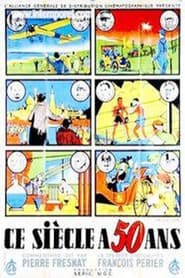 As the title of this French...
As the title of this French...The Century Is Fifty 1950
As the title of this French documentary indicates, Ce Siecle a 50 Ans examines the 20th Century at its halfway point. Utilizing the archives of several European film reserves, director Denise Tua offers a fascinating mosaic of the people and events that shaped the years 1900 to 1950. Complementing the vintage film clips are three dramatized sketches, delineating the romantic customs of three different points in time. These sketches are inadequately performed, and can easily be ignored. Ce Siecle a 50 Ans both preserved and provided celluloid material for scores of future documentaries.
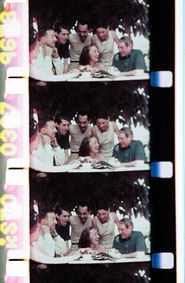 Home movie from Man Ray while...
Home movie from Man Ray while...La Garoupe 1937
Home movie from Man Ray while on vacation with Pablo Picasso, Paul, Nusch and Cecile Eluard, Emily Davies, Valerie and Roland Penrose. The friends have fun with themselves and performing for the camera.
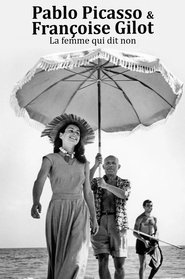
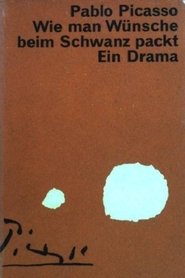 Desire Caught by the Tail One...
Desire Caught by the Tail One...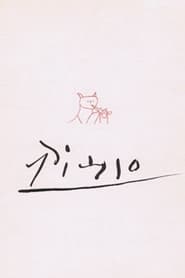 The evolution of Picassos painting up...
The evolution of Picassos painting up...